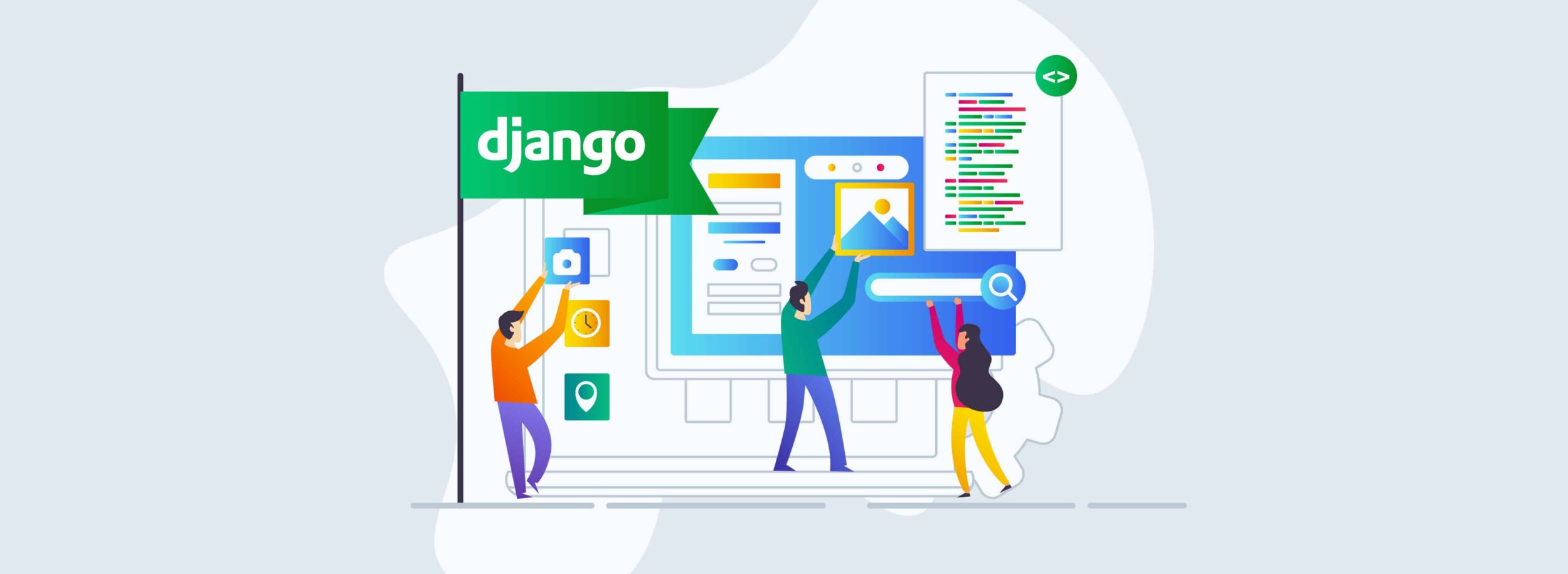Are you looking for an ideal and simple programming language? Mind, determining the best tool is not an easy task. Maybe you have heard about Django and its benefits. It seems that everything performs on a high level, with great effectiveness, in the case of working with this language. Its secret? A potent blend of speed, features, and ease-of-use that'll have you coding like a pro in no time. But what's under the hood?
Key Points:
- Effortless Workflow: Ditch boilerplate and embrace auto-generated awesomeness. Django's built-in tools supercharge your dev process.
- Fort Knox Security: Sleep soundly knowing your apps are shielded from common threats with Django's ironclad security measures.
- Scales Like a Champ: From tiny sites to traffic monsters, Django adapts seamlessly, handling any project size with ease.
- Flexibility Unbound: Content management, science platforms, or enterprise giants – Django morphs to your needs, making it your versatile dev companion.
- Beginner-Friendly Zone: Python's clarity and the vibrant Django community ensure a smooth learning curve, welcoming both veterans and coding newbies.
To start with, Django was presented in 2005, it didn’t need a lot of time to become popular. The main reason is the fact that the framework was assisted by hundreds of developers all over the world, to fulfill all the necessary tasks in the shortest terms. From the very beginning, Django was used just as a framework for Python, that could boast fantastic functionality. Finally, Django shortened lots of challenges in the web application process. Django development. Moreover, there are a lot of advantages that make experts choose exactly this programming language, to realize all available ideas and projects. Let’s deeply review those.
What are the benefits of Django development?
We have praised Django enough, now let’s focus on the advantages of following the programming language, which is not only a fast solution in web development. It also includes all the necessary tools for the highest quality code, as well as it is an excellent platform for working with the clientele of a particular business.
1. Automatically generated admin panel
It’s one of the unique features of Django, which has virtually no analogs. In addition to fact that its functionality allows significantly reduces the time of writing the necessary admin interface. It also allows customers to start working immediately with the site, even at the initial stages of its development. In fact, it’s enough to sketch out the necessary models, so you can immediately show the site to a client, and already start interactively discussing the business logic, without being distracted by design.
2. Full-featured
Django goes well with lots of extra features, whose main aim is to help with sitemaps, user authentication, and content administration. The following bonuses assist implementation in every step of web development.
3. Security
Users of Django will be impressed with the level of protection from all possible security-related errors like clickjacking, SQL injections, cross-site scripting, and forgery. Find out more about security vulnerabilities in web applications.
4. Scalability
Django is the best choice for dealing with high traffic. So, it is logical that most downloaded sites prefer Django to carry out traffic-related requirements.
5. Versatility
You will easily manage content management, scientific computing platforms, even large organizations, with help of Django.
6. Endless resources
Python can boast a large library that can be used for building large-scale applications. It suggests lots of capabilities, together with the fantastic functionality of necessary applications. No One will spend a lot of time finding resources for updating.
7. Easy to work with
Pay attention that learning to work on Python won’t be a challenge. It is made in a way, that you will learn it quickly and easily.
8. Support of most OS
Users open web applications on different platforms, and an amazing number of devices. But it is not a problem for applications developed on Django. It easily deals with any of them, as it supports almost all possible systems like MacOS, Linux, and Windows. Moreover, the ORM system that is provided by Django gives programmers excellent opportunities to work with several databases at the same time. Developers can also use this system to do usual operations, which is migration between databases without preparing special code.
9. Support of MVC paradigm
Django supports MVC design rules like many other frameworks. This paradigm allows devs to have web app UI and business logic components separately. In other words, the following approach assists programmers to make the development of big web applications quicker. Django allows using the same business logic again on multiple projects.
10. Active community
Django community assists, in decreasing application development prices significantly. Moreover, it deals with the active community of experts. Every member of the Django community constantly updates fresh plug-ins and code snippets, to make the process of development easier. Specialists can push web application development, thanks to resources that have been uploaded by community members. Also, check the list of companies that use node.js and data analytics companies.
Summing Up
Django is one of the most effective modern frameworks for developing web projects. It’s hard to think of anything that allows you to quickly implement a portal or content project, rather than using Django. Finally, you need quite a little time to transform an available idea into a great project with its help. The reason for such efficiency is a clear mechanism of working with the project, a convenient ORM – a system of models to simplify the use of the database, and a built-in functional template engine.
Finally, the whole process of project development turns out to be a great pleasure, so that experts have a unique opportunity to concentrate on the design process and improving apps functionality. As a result, Django is worth paying attention to for both, beginners and experienced developers. It will become a reliable tool for achieving all goals and realizing important ideas.








